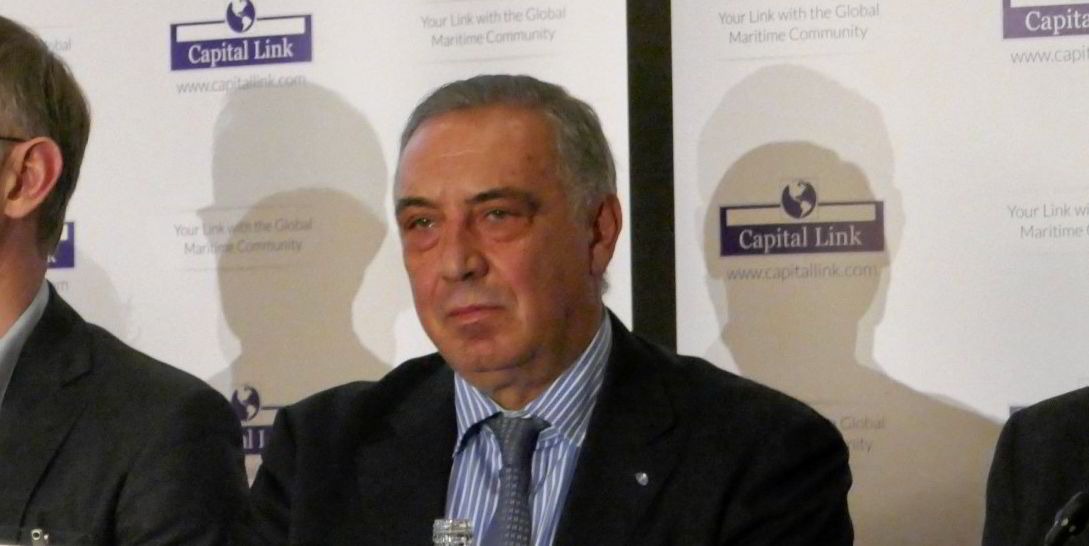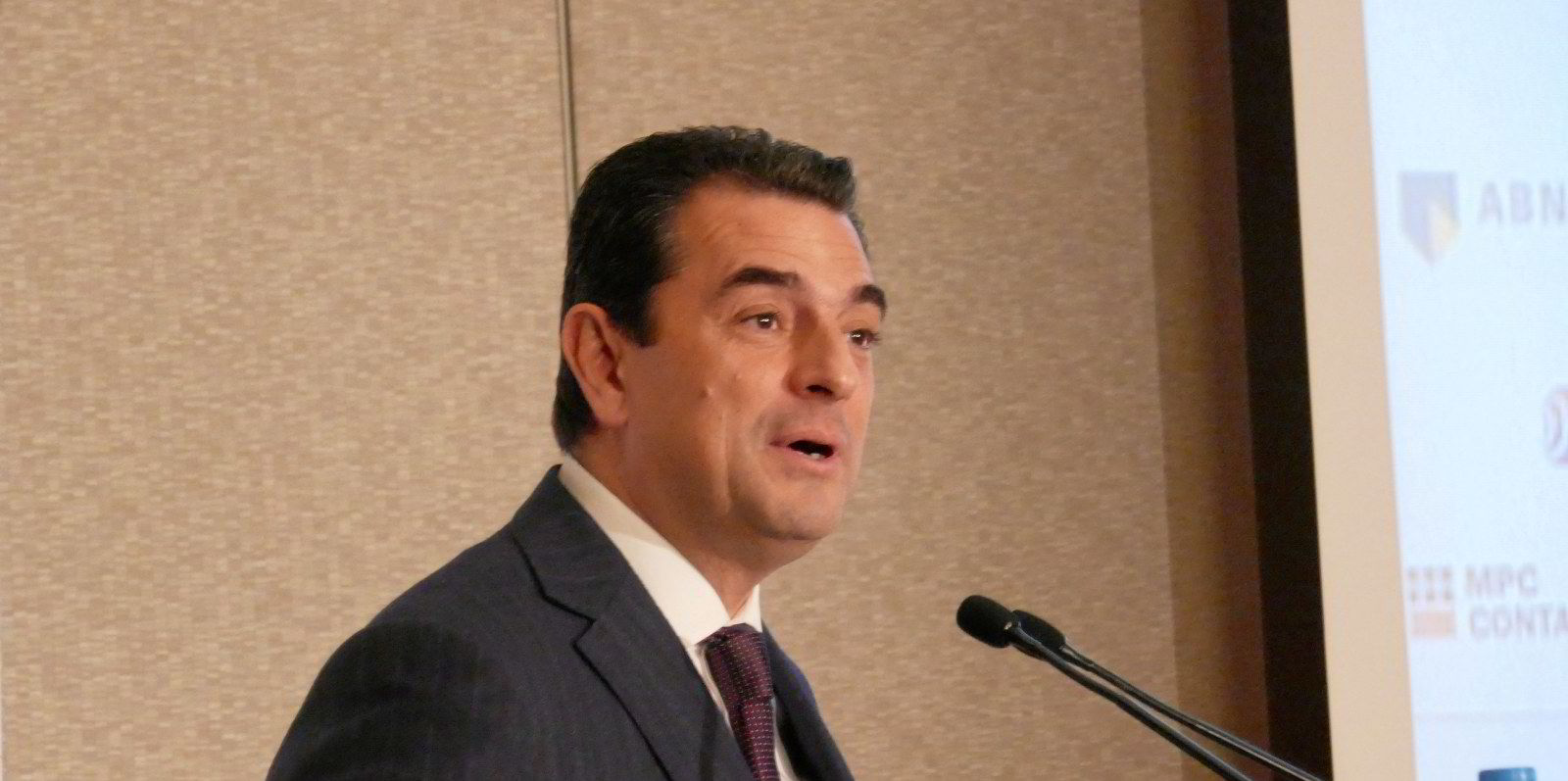If you want to have an idea of what impact the West’s new oil sanctions against Russia will have, look no further than the old ones.
That is the view expressed on 9 February by Sveinung Stohle, deputy chief executive of the Angelicoussis Shipping Group (ASG), one of the world’s biggest shipping companies.
“I think the effect of the ban on the Russian refined products will be exactly the same as the ban on crude,” Stohle told a Capital Link conference in Athens.
“The products will not go to… Europe, they’ll go to Asia, and then Asian refiners and exporters will send more or less the same volume back to Europe,” the ASG manager continued.
“The net effect of that is going to be that tonne-miles will go up and I think that [freight] rates will go up,” he concluded.
Nikolas Tsakos, the chief executive officer of another major tanker owner, Tsakos Energy Navigation, seemed to be indirectly agreeing with Stohle.
“It seems that the tanker market has legs,” he said on the same panel.
“As a human being, I’d rather have a market with fewer legs in a more peaceful world,” Tsakos quickly added.
On 5 February, G7 countries expanded to refined petroleum products from Russia the regime they introduced last year for the country’s crude — a ban on direct imports and a price cap on oil carried to third countries with the help of Western insurers or shipping companies.

ASG, a shipping giant with currently 143 vessels on the water — roughly equally divided between tankers, bulkers and LNG carriers — isn’t directly concerned.
Very soon after Russia invaded Ukraine in February 2022, ASG principal Maria Angelicoussis pledged that her company wouldn’t transport Russian cargoes.
Angelicoussis ships have been instead busy in the burgeoning seaborne transport of liquefied, non-Russian natural gas into Europe, as Russia’s old customers wean themselves off their energy dependency from Moscow.
ASG’s home country Greece is a characteristic example.
Greek energy minister Konstantinos Skrekas told the Capital Link conference earlier in the day that Greek LNG imports from the US have soared lately, from zero levels just four years ago.
ASG was one of the first Greek companies to invest heavily in LNG carriers but it is no longer the only one.
According to Skrekas, 60 LNG carriers currently under construction have been ordered by Greeks, almost 50% of the total.

Greeks have been investing in such infrastructure as well. Local players, backed by shipping interests, are completing a floating storage and regasification unit at Alexandroupolis.
A final investment decision is about to be taken on a second FSRU near Athens. Three units more have obtained state permits.





